Five C-Store Champions discuss their business ambitions for 2013
Atul Karavadra, Londis Latestore, Northampton
Having recently set up an in-store pharmacy, Atul is going to assess his health and beauty products offering in 2013 in order to better meet the needs of his customers and increase sales.
Malcolm Crump, Spar Compton, Wolverhampton
He may not have much money to invest this year, but that doesn’t mean Malcolm won’t be modernising his business. Instead, he’ll be carefully studying his product ranges and focussing on improving customer service.
John Cuthbertson, Premier at the Union, Dundee, Scotland
A big supporter of epos, John urges other retailers to analyse their sales data in order to make educated decisions on which products to stock, and what to ditch in order to maintain a tight ship.
Harry Goraya, Rosherville Post Office, Gravesend, Kent
Rosherville Post Office is celebrating 5.9% growth this year, but Harry isn’t resting easy. He knows that the only way to ensure progress is to remain open to new ideas and be prepared to implement them in-store.
Lionel Cashin, The Paper Shop, Market Weighton, York
As part of the Portas Pilot, Lionel has teamed up with other retailers in his local area to grow sales and ensure that the market square remains the hub of the local community.
How do you expect the convenience sector to perform in 2013?
Harry: I think the professional retailer will do at least as well as he’s done last year, but the retailer who doesn’t adapt and move with the times will suffer.
John: The sector will do well as long as operators continue to update their businesses. Those who are prepared to invest and modernise will be fine.
Malcolm: Within the sector as a whole the prospects are excellent - we are streets ahead. The problem is that everyone knows this and the big supermarkets are moving into the sector, meaning that established convenience retailers like ourselves are having a tough time.
Atul: I think it’s going to be another tough year, but progressive retailers will do well. You have to keep finding new ideas and services.
Lionel: As people continue to get poorer - which they will over the next year - they’ll be reluctant to do big shops and will visit small shops more frequently, so there is an opportunity for independents.
And what are your business prospects?
Harry: I think we’ll be okay. This year we were up 5.9%, so we’ll hope to stay steady next year, or even grow.
John: I’m relatively confident. My biggest fear is the spread of the multiples. We’ve now had a second Tesco Express open just 400 yards from campus. We are currently trading 0-5% down year on year. We may grow in 2013, but only marginally.
Malcolm: I’m expecting growth, but slow growth. That’s not to say that we’re throwing in the towel, but we’re having to work harder to stay where we are.
Atul: We were 5% up year on year and I expect that to carry on. We’re never happy sitting back thinking it’ll be okay. We expect to grow the business by increasing customer confidence through excellent service and store standards, and a good pricing policy.
Lionel: We have a peculiar situation in Market Weighton in that there are 2,800 households and the number of lottery terminals has increased from three to five. This is fragmenting the market and as ours was one of the original terminals, our lottery turnover is down 15%. Hopefully, we will recover some of this over the next 12 months.
What is your New Year’s resolution in terms of business?
Harry: I want to make sure I continue to keep my horizons open listen to good advice from my fellow colleagues and implement ideas that I think will work in my store.
John: I’m planning to retire this year after 50 years in the business, so my main aim is to hand over the business smoothly.
Malcolm: Raise standards - if we don’t we’ll fall behind.
Atul: Mine is to try to make more money! I’ll do this by investing in the business and keeping it fresh. It has to be a place where people want to keep coming back.
Lionel: To continue to re-invest in the business all the time. If you don’t, you’ll only go backwards.
What changes are you planning to make to your product range?
Harry: We’ll be reducing lines that don’t sell fast enough and ensuring we stock strong sellers. We’re making a list of the top 10 or 20 best-selling products we should be stocking in each category and looking to re-merchandise accordingly.
John: We’re looking to improve our food-to-go offering and we’d also like to have more chilled space for fruit and veg. The Scottish Grocers’ Federation has a Healthy Living project and there will be a big push on that this year. We’ll expand with more salads and a wider range of fruit, such as kiwis and mangos.
Malcolm: We’ll be introducing more interesting product lines and removing slow sellers. We’re really trying to raise the standard of our fresh produce.
Atul: Product range will be our priority. We’re looking to expand our fruit and veg and maybe sell loose products.
Lionel: We are looking at introducing an off-licence. In a 200-year building it is difficult to make changes, but we’re in a good location so we’d hope to benefit from commuters on their way home from work.
What other changes are you planning to make?
Harry: We are revising our store layout to ensure that the categories are in a more logical order.
John: We’re hoping the university may help fund a store expansion. We’re in the process of creating a proposal.
Malcolm: We’ll be investing our time in looking at standards and fighting to make improvements.
Atul: Last year we added an in-store pharmacy. We’re already seeing a positive difference, but we may carry out a re-merchandising exercise to introduce more health and beauty products and locate them next to the pharmacy.
Lionel: We are going to invest in staff training to ensure that every customer is offered the chance to buy a lottery ticket. This will be carried out on site by myself and Yvonne, but we may also talk to Camelot as well and see if they can support us. We’re also working with other retailers in the area as part of the Portas Pilot scheme. Over Christmas, we organised a late-night shopping event on the market square, which was well received. I expect these types of activities to continue.
How do you think shopper habits will evolve in 2013, and how will this affect you?
Harry: I think 2013 will be another year of belt tightening, so value for money will remain a high priority.
John: Healthy eating is something more people will look at. It’s amazing how many shoppers pick up a sandwich and scan the ingredients on the pack.
Malcolm: People will continue to seek out all the offers you’ve got. Everything on promotion will sell, and when it’s not on deal it will stay on the shelf.
Atul: The shopper is going to continue to remain smart - buying often and buying what’s needed. They are avoiding the big supermarkets because they know they’ll leave having bought too many products.
Lionel: People come in all too often to buy a paper with the exact money in their hands. They are conscious that they may want to over-spend, so they just don’t bring any extra cash with them. This makes it harder for us to increase basket spend.
What would be your golden piece of advice for fellow retailers?
Harry: Don’t close your eyes. Look at what your competitors are doing. Check out the multiples, the discounters, and the pound shops and find out how they are taking from your business and whether you can counteract this by working with trade partners, such as your symbol group and suppliers.
John: Ensure your shop is up to date. Carry the correct range for your operation and use your epos figures to see how each line is performing. Try new lines all the time and get into the habit of scanning through your products regularly to establish what is and isn’t selling.
Malcolm: Take a fresh look at the store. I tell everyone: ‘Don’t tell me I have a wonderful store, tell me what needs improving’. I welcome suggestions.
Atul: Invest in your store, staff and standards. You might think business is down so won’t invest, but it’s a vicious circle. If you stop investing, standards will fall.
Lionel: Do what you do better. Complacency is something that you have to fight, you must continue to innovate.
In which areas do you plan to invest the most money this year?
Harry: Last year I got doors retrofitted onto my chillers. This year I’ll be looking at training.
John: We’re hoping to expand the store. We’ll also be looking at energy efficient equipment and the possibility of putting doors on chillers.
Malcolm: We’re intending to fit doors to all our existing refrigeration. We’ll be running at 40% less power and we’ll have smaller fans put in. It will cost £20,000, but we’ve been told that the power bill should be down by 20%, so it will pay for itself in a maximum of five years.
Atul: Londis is quite keen to introduce energy efficient schemes and introduce doors on chillers, so that’s something worth looking at.
Lionel: The banks are reluctant to provide funding so we are now in the process of finding alternative funding. If this goes ahead, we’ll look at a refit.
What are you going to tell staff are the key priorities for the year ahead?
Harry: I’ll tell staff to keep doing what they are doing. I’ll also ask them to tell me where they think we can improve. In addition, I’ll be explaining to them why it’s important to go the extra mile and give good customer service and how it benefits the business as a whole.
John: Customer service - it’s already at a high standard, but we must improve it, as well as keeping the store tidy and well-merchandised.
Malcolm: I’ll tell them to be friendly and helpful and give customers their full attention. The one thing we can capitalise on is customer service.
Atul: Keep improving the service you offer make sure products are available on shelf and well displayed.
Lionel: Customer service is more important than ever. The one point of difference we have is being independent and being part of the community, so I’ll be training staff to ensure everyone who visits the store has a positive experience.







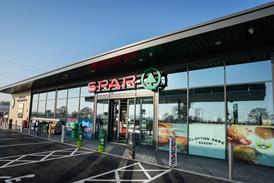
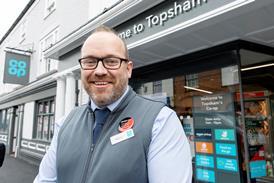
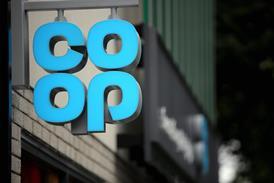

![WG-4003[58]](https://d2dyh47stel7w4.cloudfront.net/Pictures/274x183/4/5/1/353451_wg400358_6083.jpg)




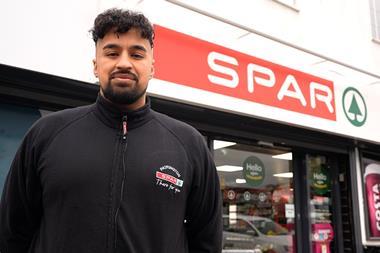
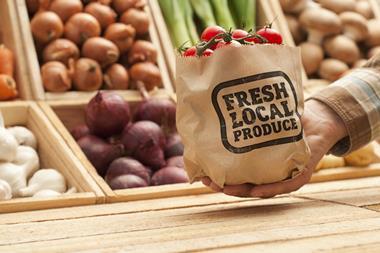
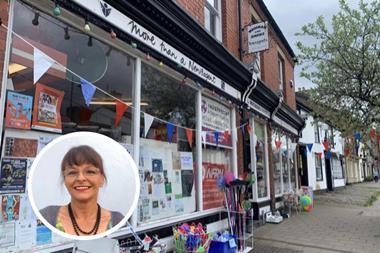
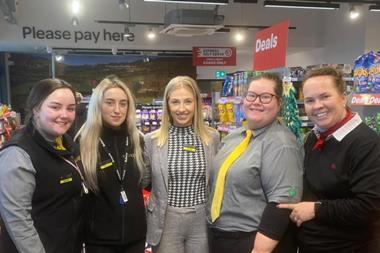
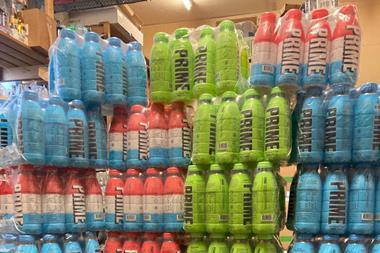

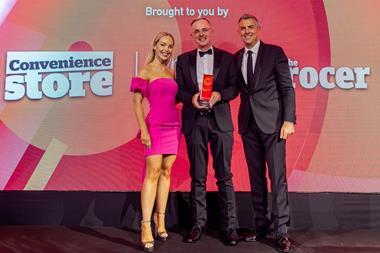
![C-Store_Champions_logo-CHOSEN[1] 2023](https://d2dyh47stel7w4.cloudfront.net/Pictures/380x253/6/5/7/301657_cstore_champions_logochosen12023_817064.jpg)



